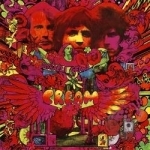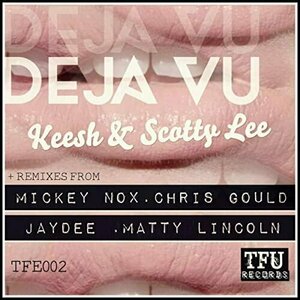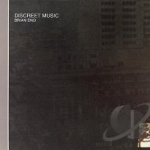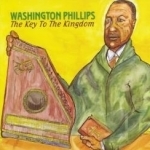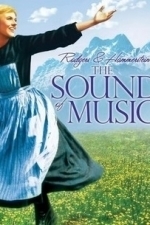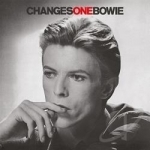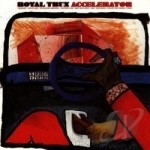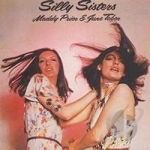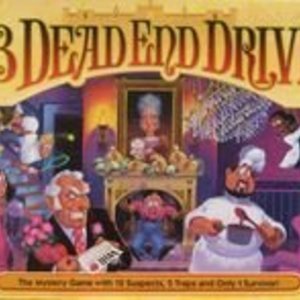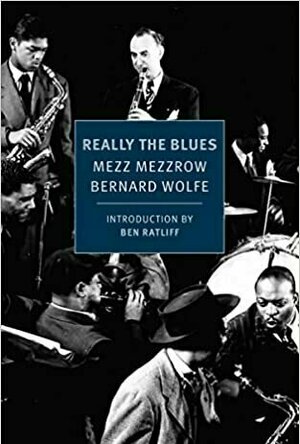Search
Search results
Biff Byford recommended Disraeli Gears by Cream in Music (curated)
Colin Newman recommended Deja Vu by Matty in Music (curated)
Colin Newman recommended Discreet Music by Brian Eno in Music (curated)
Stuart Braithwaite recommended Key to the Kingdom by George Washington Phillips in Music (curated)
Toni Collette recommended The Sound of Music (1965) in Movies (curated)
Dave Mustaine recommended Changesonebowie by David Bowie in Music (curated)
Faris Badwan recommended Accelerator by Royal Trux in Music (curated)
Rachel Unthank recommended Silly Sisters by Maddy Prior / Silly Sisters / June Tabor in Music (curated)
Matthew Krueger (10051 KP) rated 13 Dead End Drive in Tabletop Games
Jul 17, 2020 (Updated Jul 18, 2020)
The Traps (3 more)
Its like Clue
Excellent Bluff Game
High replayablity
Dont know who has who (2 more)
Its easy to hit and knock off the traps.
The set up is long
Excellent Murder Mystery Bluff Deduction Game
13 Dead End Drive- is a excellent bluff deduction murder mystery board game. I learned about it through the Funhaus channel. Its like clue but so much different. Let me explain.
13 Dead End Drive is a murder-themed board game originally from Milton Bradley. Released in 1993, it was followed in 2002 by a sequel, 1313 Dead End Drive. Currently, Winning Moves Games USA Winning Moves publishes the game in the USA.
The story behind the game involves the death of a wealthy old woman triggering a feud over her will. The players utilize traps located on the game board, which represents a mansion, to kill characters controlled by other players in order to claim the estate for themselves.
The Gameplay:
At the start of gameplay, players are dealt "Character cards" which correspond to matching pawns on the board. Since there are 12 characters, it is often the case that players control more than one character. However, which player controls which character is not revealed. Along with the character cards, there are also Portrait Cards, which determine who the current favorite for the inheritance is, and Trap Cards, which are used to spring traps and knock off other players.
During each turn, a player rolls two dice and moves two pawns, one pawn for each die. It is legal for players to move a pawn that is not theirs in order to bring it closer to or onto a Trap Space. All pawns must be moved off the red chair spaces before any pawns can be moved a second time or onto a trap space. If a pawn is moved onto a trap space by exact roll only, the player must have the corresponding trap card in his or her possession in order to spring the trap. Springing traps is not mandatory, however. After that, play proceeds on to the next player. A pawn can not pass through or land on the same space as another pawn during the same turn.
During the game, a Portrait Card is displayed in the picture frame above the fireplace. That character is now the current favorite to inherit the fortune. At that moment, for all intents and purposes, that character is now marked for death and must try to escape the mansion before he or she is either knocked off or the portrait changes (see "Special Spaces and Rules" below).
Also, during the game, a Detective is waiting outside, slowly advancing toward the front door. His arrival signifies the reading of the will and the announcement of the winner. The Detective can only move one space at a time, and only when a Detective Card (hidden inside the Trap Card pile) is drawn. There are 13 steps to the front door. If the Detective makes it to the front door before all other characters have been eliminated, the game is over.
Ways to win:
There are three ways to win 13 Dead End Drive:
Be the last character alive.
Escape the Mansion while your character's picture is displayed in the Picture Frame.
Have your character's picture displayed in the Picture Frame when the Detective reaches the front door.
Traps:
13 Dead End Drive has five different booby traps that are used to dispose of other characters. In the story of the game, the traps are designed to make deaths appear accidental. The traps are the Chandelier, the Bookcase, the Stairs, a Statue in a suit of armor, and the Fireplace: if a pawn has the misfortune to land on the trap space in front of or under one of these traps, the Trap card is played and the trap is sprung in the following ways:
To activate the Chandelier, flip a switch in the music room that drops the chandelier onto the pawn, eliminating it from play.
To activate the Bookcase, move that pawn up onto the top of the ladder and rest that pawn on top of the bookcase in the library, and flip a switch that will send the pawn flying back onto the board and eliminating it from play.
In order to activate the Stairs, a player can move it up onto the top of the stairs in the hall and flip a switch that will violently toss the pawn back down the stairs and onto the board, resulting in its elimination.
To activate the Statue, in the gallery, a player can flip a switch that will send a statue in a full suit of armor crashing down onto the pawn.
The Fireplace is activated in the dining room when a player flips a switch that will send the pawn flying backwards and into the figurative fire, though the box describes it as a Trap Door.
When a player moves a pawn onto a Trap Space, they must draw a card from the Trap Card pile (if they do not already have the matching trap card in their possession). If the player draws the matching Trap Card, they can either play it immediately or hold the card for future use. If the player does not have the matching Trap Card, the trap cannot be sprung, but the card can be saved for future use. There are also "Wild" Trap Cards which permit all traps to be used anytime a pawn is in that space. If, however, the player draws a Detective card, the Detective is moved one space forward, but the player is permitted to draw another Trap Card before ending the turn.
Once a trap is sprung, that pawn and the matching Character Card are laid down on the "Discard" pile on the board (the couch). If during the course of play, a Portrait Card comes up for a character that has been knocked off, that card is immediately taken down and placed on the "Discard" pile, revealing a new Portrait. The Portrait cards are shuffled at the beginning of gameplay and concealed by an "Aunt Agatha" portrait card to hide the known deck order.
Special spaces and rules:
Rolling Doubles: If a player rolls doubles that player chooses whether or not to move the current Portrait card to the back of the pack to reveal new Portrait. The player then has the choice of:
Moving one pawn the total number of spaces shown on the dice, or
Moving two pawns, one pawn for each die.
Secret Passages: On the board are special spaces that represent "Secret Passages."
Any character can enter any secret passage at any time, regardless of whether or not it is by exact roll. Moving from one secret passage to another counts as one space move for a character. Secret passages are often used to bring opponent's pawns closer to traps or to bring a player's own pawn closer to the door.
Bluffing: Bluffing is permitted in "13 Dead End Drive." In terms of strategy, a player may move their own pieces towards or even onto trap spaces in an attempt to fool opponents. Even if that player has the matching trap card for the space their own character is on, they do not have to play it. Instead, they can pretend that they do not have the correct card and draw another one. If they happen to draw the right trap card, they can pretend that the card is the wrong one, and play continues as normal.
Its a excellent game, if you like clue than you will love this game. Its a excellent bluff deduction murder mystery game.
13 Dead End Drive is a murder-themed board game originally from Milton Bradley. Released in 1993, it was followed in 2002 by a sequel, 1313 Dead End Drive. Currently, Winning Moves Games USA Winning Moves publishes the game in the USA.
The story behind the game involves the death of a wealthy old woman triggering a feud over her will. The players utilize traps located on the game board, which represents a mansion, to kill characters controlled by other players in order to claim the estate for themselves.
The Gameplay:
At the start of gameplay, players are dealt "Character cards" which correspond to matching pawns on the board. Since there are 12 characters, it is often the case that players control more than one character. However, which player controls which character is not revealed. Along with the character cards, there are also Portrait Cards, which determine who the current favorite for the inheritance is, and Trap Cards, which are used to spring traps and knock off other players.
During each turn, a player rolls two dice and moves two pawns, one pawn for each die. It is legal for players to move a pawn that is not theirs in order to bring it closer to or onto a Trap Space. All pawns must be moved off the red chair spaces before any pawns can be moved a second time or onto a trap space. If a pawn is moved onto a trap space by exact roll only, the player must have the corresponding trap card in his or her possession in order to spring the trap. Springing traps is not mandatory, however. After that, play proceeds on to the next player. A pawn can not pass through or land on the same space as another pawn during the same turn.
During the game, a Portrait Card is displayed in the picture frame above the fireplace. That character is now the current favorite to inherit the fortune. At that moment, for all intents and purposes, that character is now marked for death and must try to escape the mansion before he or she is either knocked off or the portrait changes (see "Special Spaces and Rules" below).
Also, during the game, a Detective is waiting outside, slowly advancing toward the front door. His arrival signifies the reading of the will and the announcement of the winner. The Detective can only move one space at a time, and only when a Detective Card (hidden inside the Trap Card pile) is drawn. There are 13 steps to the front door. If the Detective makes it to the front door before all other characters have been eliminated, the game is over.
Ways to win:
There are three ways to win 13 Dead End Drive:
Be the last character alive.
Escape the Mansion while your character's picture is displayed in the Picture Frame.
Have your character's picture displayed in the Picture Frame when the Detective reaches the front door.
Traps:
13 Dead End Drive has five different booby traps that are used to dispose of other characters. In the story of the game, the traps are designed to make deaths appear accidental. The traps are the Chandelier, the Bookcase, the Stairs, a Statue in a suit of armor, and the Fireplace: if a pawn has the misfortune to land on the trap space in front of or under one of these traps, the Trap card is played and the trap is sprung in the following ways:
To activate the Chandelier, flip a switch in the music room that drops the chandelier onto the pawn, eliminating it from play.
To activate the Bookcase, move that pawn up onto the top of the ladder and rest that pawn on top of the bookcase in the library, and flip a switch that will send the pawn flying back onto the board and eliminating it from play.
In order to activate the Stairs, a player can move it up onto the top of the stairs in the hall and flip a switch that will violently toss the pawn back down the stairs and onto the board, resulting in its elimination.
To activate the Statue, in the gallery, a player can flip a switch that will send a statue in a full suit of armor crashing down onto the pawn.
The Fireplace is activated in the dining room when a player flips a switch that will send the pawn flying backwards and into the figurative fire, though the box describes it as a Trap Door.
When a player moves a pawn onto a Trap Space, they must draw a card from the Trap Card pile (if they do not already have the matching trap card in their possession). If the player draws the matching Trap Card, they can either play it immediately or hold the card for future use. If the player does not have the matching Trap Card, the trap cannot be sprung, but the card can be saved for future use. There are also "Wild" Trap Cards which permit all traps to be used anytime a pawn is in that space. If, however, the player draws a Detective card, the Detective is moved one space forward, but the player is permitted to draw another Trap Card before ending the turn.
Once a trap is sprung, that pawn and the matching Character Card are laid down on the "Discard" pile on the board (the couch). If during the course of play, a Portrait Card comes up for a character that has been knocked off, that card is immediately taken down and placed on the "Discard" pile, revealing a new Portrait. The Portrait cards are shuffled at the beginning of gameplay and concealed by an "Aunt Agatha" portrait card to hide the known deck order.
Special spaces and rules:
Rolling Doubles: If a player rolls doubles that player chooses whether or not to move the current Portrait card to the back of the pack to reveal new Portrait. The player then has the choice of:
Moving one pawn the total number of spaces shown on the dice, or
Moving two pawns, one pawn for each die.
Secret Passages: On the board are special spaces that represent "Secret Passages."
Any character can enter any secret passage at any time, regardless of whether or not it is by exact roll. Moving from one secret passage to another counts as one space move for a character. Secret passages are often used to bring opponent's pawns closer to traps or to bring a player's own pawn closer to the door.
Bluffing: Bluffing is permitted in "13 Dead End Drive." In terms of strategy, a player may move their own pieces towards or even onto trap spaces in an attempt to fool opponents. Even if that player has the matching trap card for the space their own character is on, they do not have to play it. Instead, they can pretend that they do not have the correct card and draw another one. If they happen to draw the right trap card, they can pretend that the card is the wrong one, and play continues as normal.
Its a excellent game, if you like clue than you will love this game. Its a excellent bluff deduction murder mystery game.
